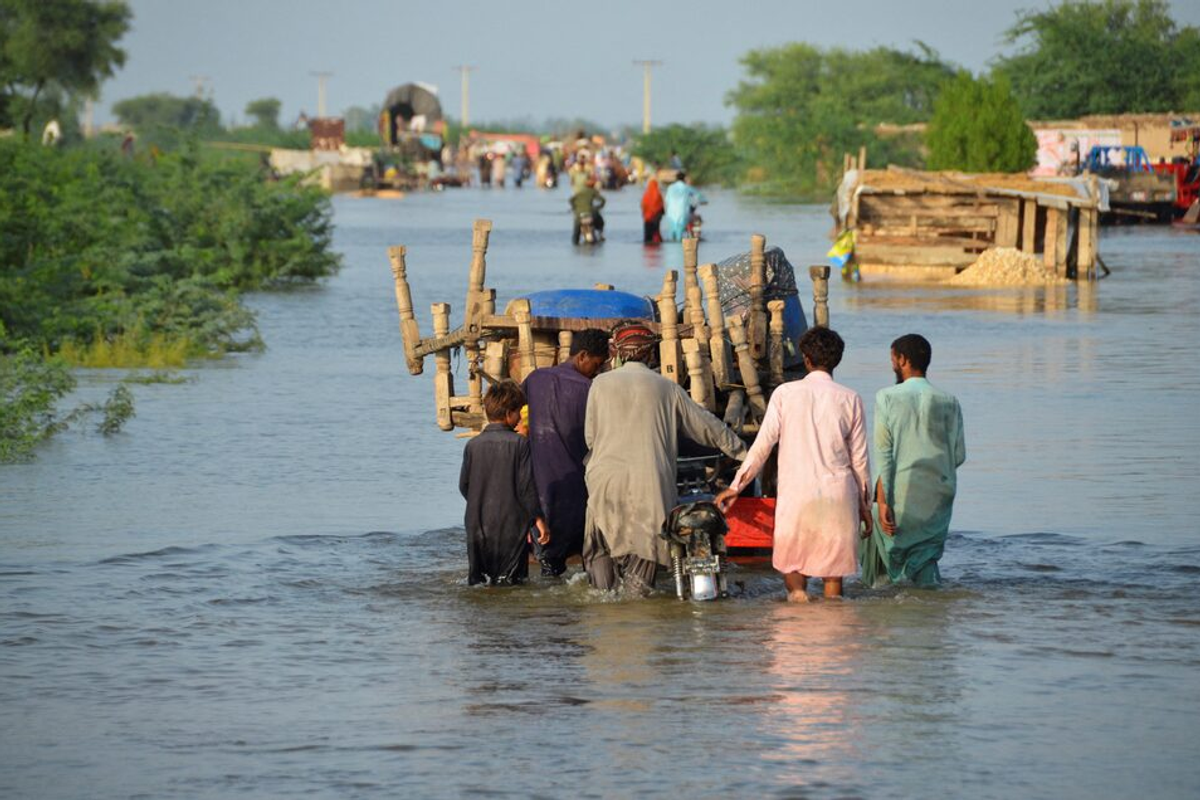Experts call for urgent climate financing as Pakistan deals with natural disasters
In a new report, OICCI outlines actions for regenerative agriculture, decarbonization and carbon market development
Business Desk
The Business Desk tracks economic trends, market movements, and business developments, offering analysis of both local and global financial news.

Experts have stressed the need for urgent steps to mobilize climate financing as Pakistan—one of the countries most vulnerable to the impacts of changing weather patterns—deals with destruction caused by climate-induced disasters.
The Overseas Investors Chamber of Commerce and Industry (OICCI), in its 3rd Pakistan Climate Conference Report, titled “Creating an Enabling Environment for Private Sector Participation in Climate Resilience,” said mobilizing climate finance at scale was the need of the hour.
The private sector can play a central role in building resilience against climate disasters, it added.
Pakistan is ranked first on the Climate Risk Index 2025. The country contributes less than 0.9% to global greenhouse gas emissions, but faced disproportionate losses due to natural disasters, OICCI added.
In 2022 alone, climate-induced disasters inflicted over $30 billion in damages, with recovery needs exceeding $16.3 billion.
According to OICCI data, air pollution causes over 128,000 premature deaths annually, while productivity in agriculture has declined by 10 to 20% due to climate variability.
Experts have warned that Pakistan now requires $40 to 50 billion annually to effectively mitigate and adapt to climate risks.
The OICCI report outlines actions required for regenerative agriculture, industrial decarbonization, plastic circularity and carbon market development. It calls for climate funding and interlinked policy actions to close Pakistan’s climate financing gap.
While addressing the launch event of the OICCI report, Ministry of Climate Change and Environmental Coordination Secretary Aisha Humera Chaudhry said Pakistan’s climate vulnerability was a “globally acknowledged reality”. She said the country’s climate finance models should effectively cater to local solutions.
The role of the private sector is central to our national climate strategy, the official said, and called upon international partners to “match Pakistan’s climate ambition with significant funding support”.
The OICCI also said Pakistan requires efforts for urgent decarbonization. Without these initiatives, Pakistan’s exports face “mounting risks” under new global trade frameworks, such as the EU’s Carbon Border Adjustment Mechanism.
OICCI Secretary General M Abdul Aleem said Pakistan’s reliance on fossil fuels and carbon-intensive practices “puts our exports at risk”, especially under frameworks like the EU’s Carbon Border Adjustment Mechanism. “Decarbonization and green finance are no longer optional, they are essential to sustaining economic growth and global competitiveness,” he added.
Sustainable Development Policy Institute Executive Director Dr Abid Suleri also emphasized the need for policy and financing actions to deal with the climate crisis. “Pakistan must now move beyond pledges and create an ecosystem where private investment in climate resilience is not only encouraged but enabled through consistent policy, data transparency, and accessible financing instruments,” he added.
In her address, ACCA President Ayla Majid said the role of skills and financial expertise is critical in climate action. She added that climate financing is not only about securing funds. It is also important to ensure the money is spent “effectively and with transparency” so that it yields a measurable impact.
“Building the financial, technical, and governance capacities to manage these resources is key to turning commitments into real resilience for Pakistan.”










Comments
See what people are discussing